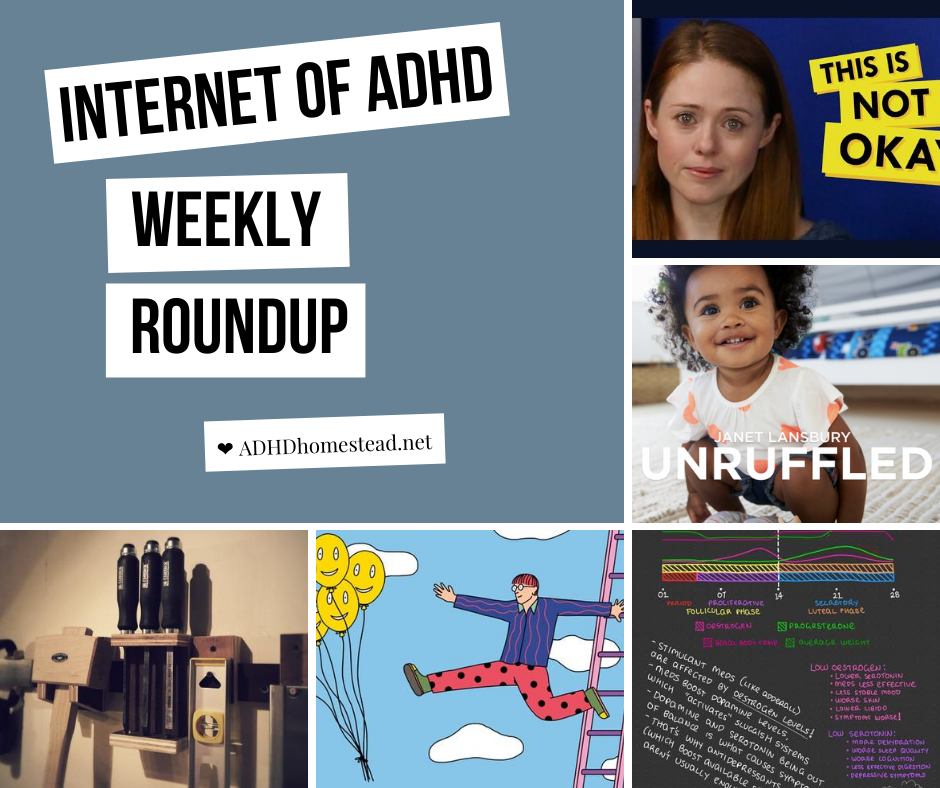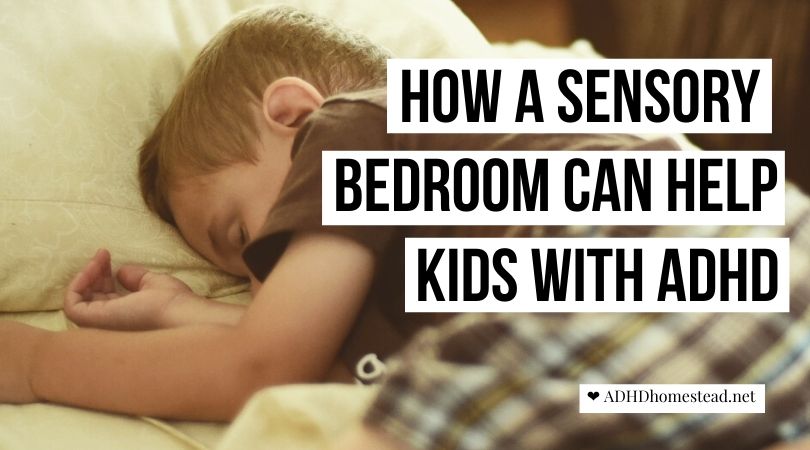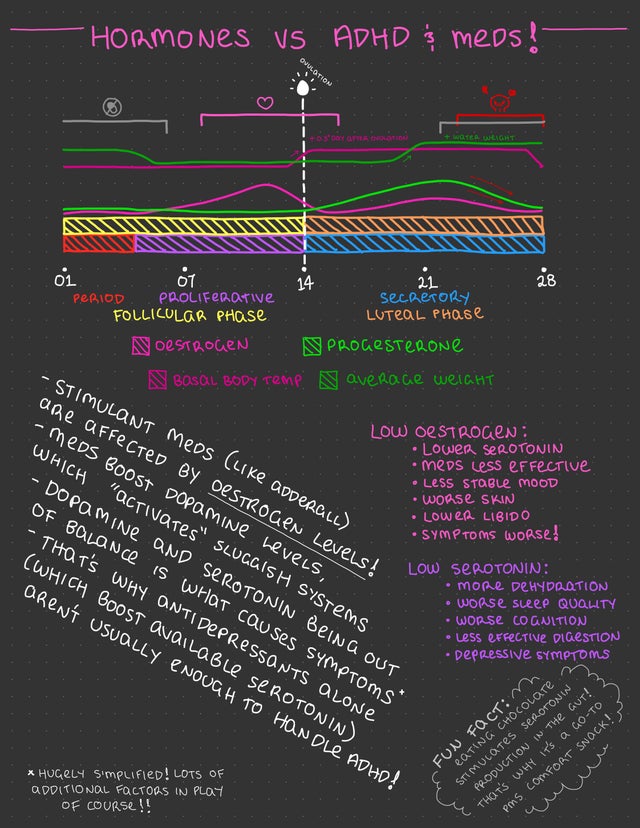It’s another double header! All kinds of stuff in here, from parenting to meds to the “ADHD tax.”

Engaging in Your Child’s Play Without Interrupting | Janet Lansbury
This gets at something I’ve always really valued as a parent: boundaries. I was interested in the way she talks about children’s perception of our comfort when they make demands of us. They can tell when we’re uncomfortable, and that nudges them further toward exploring boundaries and power structures than playing independently and otherwise exercising their autonomy and competence.
Parents with ADHD need boundaries. Our attention spans are limited and so is our capacity to be everything for everyone in our household.
Even as I type this, twenty minutes or so ago my kiddo asked to use my bedroom. He wanted a quieter spot to read a book and maybe take a little afternoon rest. I said of course, and brought him a nice fleecy blanket because I know he likes to warm up like that when he’s tired. Then he told me, “I’d also like some company.”
Mondays are busy for me normally, but this one even more so. I spent most of last week offline because I took him to the beach. I have stuff to catch up on. So I told him that: “I’m really sorry buddy, but I’m not going to do that right now. I need to make progress on my list for today before it gets too late.”
He responded, “Okay,” then opened his book and started reading.
During the pandemic I’ve been especially thankful for this understanding between us. It’s not always perfect, not every day goes smoothly, but since birth he has had an expectation that sometimes I need to work on my own projects. Sometimes I will acquiesce to a request, like playing a game together, but I will draw a boundary when picking the game: “I’m too tired for that one today, I think I’d have a lot more fun if we played this game instead.”
Setting boundaries isn’t unkind or neglectful. On the contrary, it encourages self-sufficiency and models healthy relationships for your kiddos. Their first, safest relationships are with us. We teach them not only how to treat others, but how to expect others to treat them.
‘Success Addicts’ Choose Being Special Over Being Happy | The Atlantic

Though it isn’t a conventional medical addiction, for many people success has addictive properties. To a certain extent, I mean that literally—praise stimulates the neurotransmitter dopamine, which is implicated in all addictive behaviors…[P]eople willingly sacrifice their own well-being through overwork to keep getting hits of success.
— Arthur C. Brooks, The Atlantic
ADHDers have less available dopamine in our brains. That makes us vulnerable to things that give us the dopamine hits we crave. We’re at higher risk for all sorts of addictions. Is it any surprise that overwork is one of them?
This gets tricky. Many people want to believe it’s possible to be “too successful” or “too smart” to have ADHD (false). Others point to success as proof their ADHD is far from debilitating: it’s an asset!
Both viewpoints can be dangerous. Self-medicating with overwork — and yes, success — can kill close relationships we need in our lives. And if we think this excessive busyness and superficial success comes from the “gift” of ADHD, who makes that happen behind the scenes? Who’s left picking up the slack or cleaning up our messes?
I’ve self-medicated with productivity all my life. Keeping busy is good. Accomplishing meaningful things is good. But equally good is maintaining awareness of what these things cost us and our families. Like any addictive substance, is our relationship to work and success healthy? Or have we pushed it too far?
Since I was studying the relationship between meds and hormone levels, I made a page of my notes to share! | u/ConfusedFlareon on Reddit
Disclaimer: this is reddit, and thus I can’t verify this drawing’s author or their sources. However, I thought it might provide a helpful way for some of us to think about the interplay between hormones, meds, and ADHD symptoms. For most women, taking the same dose of meds every day throughout our cycle will have varying effects! Dips in estrogen levels typically correspond to worsening ADHD symptoms. I’ve written about this before too, but obviously not in a fun sketch-y format like ConfusedFlareon has here 😉
Loosen task paralysis with one small thing

This week I’ve been working on an expansion of this idea for a future post. When we’re drowning in loose ends, it’s hard to take a small win. But sometimes the small win is exactly what we need to loosen our paralysis.
Diversity Is Dead: Freestyle Thoughts on Neurodiversity, Black Life, Reconciliation and the Commodification of “Wokeness” | Romanza McAllister for ADDA
Whenever I share my own content about ADHD and privilege — specifically, content that asks the question, “Who gets to call their ADHD a gift?” — I’m fascinated by the response. Some folks will thank me enthusiastically, as though they’ve been waiting for someone else to say what’s been on their mind. Others have pushed back and told me I’m being “too negative.” Trying to take away someone’s hard-won feelings of confidence and self-worth.
Some have gone so far as to ask me to delete my posts on this topic, saying my words are triggering, even abusive.
We have all struggled. We can also honor other ADHDers’ struggles without in any way diminishing our own.
Here in the US — and I’m sure elsewhere too, but this is the water I swim in — race absolutely affects who, as this article’s author puts it, “gets to ADHD.” It takes nothing away from any of us to acknowledge that. It harms all of us to pretend privilege and racism have no effect on how we view ADHD (ours or others’).
Excerpted from the article:
As fellow ADHDers, we can’t push the agenda of neurodiversity; not without shining a light on how privilege and systems work to humanize some and dehumanize others. We can’t make space for learning and functional differences while we fail to make space for/accommodate different identities. And while we are at it… Who exactly gets to ADHD anyway? Countless Black lives have been taken while engaging in the simplest yet perfectly human activities of daily living. Being an ADHDer in my world feels unsafe. Race is a construct. Being human is not.
Romanza McAllister, LCSW
The ADHD tax is real | @barisanhantu on Twitter
Pretty sure I talk about unopened mail within the first five pages of Order from Chaos. Not only that, early in my ADHD journey I sat down and catalogued all the ways my ADHD was costing me money. The list was surprisingly comprehensive! Whew. Having a supportive partner to sit with us through this stuff is so, so valuable.
How ADHD Treatment Is Not ADHD Friendly | How to ADHD
This one hurts. I found myself in a similar bind in March and April. My husband changed job, which meant we got new insurance, and I had to go through the prior authorization dance again.
Meanwhile, a pandemic was shutting down our state.
I ended up paying $450 out of pocket for my meds for two months while I waited for the arcane communication between my doctor, pharmacist, and insurance carrier to play out. In part because of the pandemic. So much was falling apart, I didn’t feel like *I* could afford to fall apart.
In theory the $450 cash price is reimbursable now that my insurance carrier has decided I have a right to the medication my doctor has been prescribing me for years. But here’s the thing: it’s more paperwork. More phone calls and menus and repeating the same story again. And if they decline to reimburse me, I’ve just wasted even more time than I did to get the prior authorization in the first place.
It’ll probably end up falling under what I call the ADHD tax — a line item I’m glad I’ll never fully tally up because I don’t want to know.
Use a sensory bedroom to give children with ADHD a personal oasis.

I added audio narration to this post this week. Patrons got the podcast version on Wednesday. It’s a short one, but it felt timely because our home environment feels so much more important now than ever. It’s also my first time narrating someone else’s writing!
Hey there! Are you enjoying The ADHD Homestead?
Here's the thing: I don't like ads. I don't want to sell your attention to an advertising service run by the world's biggest data mining company. I also value my integrity and my readers' trust above all, which means I accept very few sponsorships/partnerships.
So I'm asking for your support directly. For the cost of one cup of coffee, you can help keep this site unbiased and ad-free.
Below you will find two buttons. The first lets you join our crew of Patreon pals and pledge monthly support for my work. Patrons also have access to my Audioblogs podcast. The second takes you to a simple donation page to pledge one-time or recurring support for The ADHD Homestead, no frills, no strings. Do whichever feels best for you!


